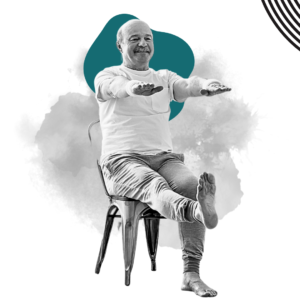Is Age Really Just a Number When It Comes to Memory?
Memory gets Better Worse

Introduction
For years, people believed that memory decline was inevitable as we age. The idea that “you can’t teach an old dog new tricks” seemed to ring true for brain health. But modern neuroscience is challenging this notion. New studies reveal that our brains have the incredible ability to grow, adapt, and improve—even as we get older. Thanks to neurogenesis and neuroplasticity, age truly is just a number when it comes to memory.
The Science Behind Neurogenesis and Neuroplasticity
Neurogenesis refers to the brain’s ability to create new neurons throughout life. It was once thought that humans were born with a fixed number of brain cells, but research has shown otherwise. A study from the University of California, San Francisco, revealed that the hippocampus—a critical part of the brain for memory—can produce new neurons even in older adults. This means that we can keep our memory sharp and resilient by promoting neurogenesis through lifestyle changes and mental exercises.
Neuroplasticity is the brain’s ability to rewire itself by forming new neural connections. When we learn something new or practice a skill repeatedly, our brain strengthens these pathways. Studies from Harvard University have shown that older adults who engage in consistent cognitive training can improve memory, attention, and problem-solving skills. This adaptability proves that age does not limit our ability to grow and learn.
How to Boost Neurogenesis and Neuroplasticity
The good news? You don’t need to be a neuroscientist to take advantage of these brain-boosting abilities. Here are proven ways to enhance neurogenesis and neuroplasticity at any age:
-
Exercise Regularly
Physical activity, particularly aerobic exercises like walking or swimming, has been shown to increase neurogenesis in the hippocampus. A study published in the journal Nature found that just 30 minutes of exercise daily can significantly improve memory and cognitive function. -
Challenge Your Brain
Learning a new skill, like playing a musical instrument or speaking a new language, activates neuroplasticity. A 2014 study from Frontiers in Psychology showed that older adults who learned a new language experienced improved memory and problem-solving skills. -
Eat Brain-Healthy Foods
Diets rich in omega-3 fatty acids, antioxidants, and vitamins (like the Mediterranean diet) support brain health and promote neurogenesis. Blueberries, salmon, and leafy greens are your brain’s best friends. -
Get Quality Sleep
Sleep is crucial for memory consolidation and brain repair. Research from the University of Rochester found that during deep sleep, the brain clears out toxins that can impair neurogenesis. -
Practice Mindfulness and Stress Management
Chronic stress can damage brain cells and inhibit neurogenesis. Mindfulness practices like meditation have been shown to reduce stress and encourage brain growth.
Conclusion:
So, is age really just a number when it comes to memory? Science says yes. With the right habits and mindset, we can continue to grow and adapt our brains at any age. Neurogenesis and neuroplasticity prove that our brain’s potential doesn’t have an expiration date. By staying mentally active, embracing challenges, and leading a brain-healthy lifestyle, we can unlock the full power of our memory and cognition, no matter how many birthdays we’ve celebrated.
Train your Brain Memory Focus
It is Not Too Late, Take Action for Your Brain Today
Want to learn how to optimize your brain and memory performance? At The Brainer Academy, we specialize in helping you unlock your cognitive potential through scientifically proven systems. Contact us today to start your mental fitness journey!
References:
- Erickson, K. I., et al. (2011). “Exercise training increases the size of the hippocampus and improves memory.” Proceedings of the National Academy of Sciences.
- Lazar, S. W., et al. (2011). “Meditation experience is associated with increased cortical thickness.” NeuroReport.
- Kuhl, P. K., et al. (2014). “New language learning enhances brain plasticity in adults.” Frontiers in Psychology.
- Spiers, H. J., et al. (2016). “Hippocampal neurogenesis in aging brains.” Nature Neuroscience.
